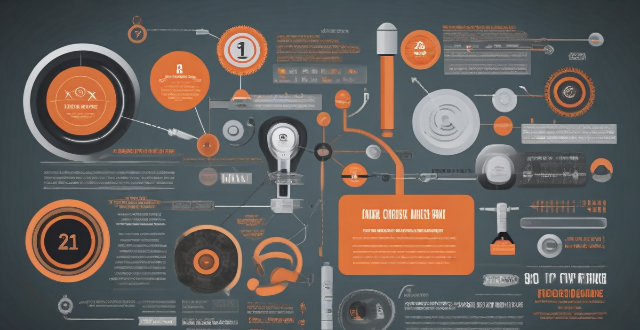When a car makes strange noises while driving, it could indicate several issues that need attention. These include engine noises such as ticking or tapping sounds, hissing or sizzling sounds, whistling or screaming noises, and rattling or clanking noises. Suspension and tire noises may also be heard, including clunking or banging noises, squealing or grinding noises, and steering noises. Transmission noises such as grinding or humming noises and slipping gears may also occur. Finally, electrical system noises like clicking or chattering noises may be present. Ignoring these strange noises can lead to more significant problems down the line, so it's always best to address any concerns promptly by taking your vehicle to a trusted mechanic for inspection and repairs.

What does it mean when my car makes strange noises while driving?
When a car makes strange noises while driving, it could indicate several issues that need attention. Here are some possible reasons for such noises:
1. Engine Noises
- Ticking or Tapping Noises: These could be signs of low engine oil levels or using the wrong type of oil. It's important to check the oil level and change the oil if necessary.
- Hissing or Sizzling Sounds: This could be due to a leak in the cooling system, such as a faulty radiator cap or leaking hoses. Check under the hood for any signs of leaks or puddles forming beneath your car when parked.
- Whistling or Screaming Noises: If you hear these sounds coming from the engine compartment, it might be due to a belt slipping or being misaligned. This requires immediate attention to avoid further damage.
- Rattling or Clanking Noises: These could indicate loose parts within the engine, like an old timing chain or worn-out piston pins. A mechanic should inspect the engine to identify and fix the problem.
2. Suspension and Tire Noises
- Clunking or Banging Noises: These sounds often come from worn-out shocks or struts in the suspension system. It's crucial to have them checked and replaced if needed to maintain control over your vehicle.
- Squealing or Grinding Noises: These could be warning signs of brake issues, such as worn brake pads or rotors. Get your brakes checked immediately to ensure safety on the road.
- Steering Noises: If you hear unusual noises when turning the steering wheel, it might be due to power steering problems or a damaged tie rod end. Have a professional mechanic inspect your steering system.
3. Transmission Noises
- Grinding or Humming Noises: These sounds could indicate transmission problems, such as low transmission fluid levels or internal issues within the transmission itself. Check the transmission fluid level and condition, and consult a mechanic if needed.
- Slipping Gears: If you hear clunking noises when shifting gears, it might be because of worn-out gear synchronizers or other transmission components. A qualified technician should diagnose and repair this issue.
4. Electrical System Noises
- Clicking or Chattering Noises: These sounds can come from electrical components like relays, switches, or alternators. Have a professional mechanic inspect your electrical system to identify and resolve the issue.
Remember, ignoring strange noises from your car can lead to more significant problems down the line. It's always best to address any concerns promptly by taking your vehicle to a trusted mechanic for inspection and repairs.